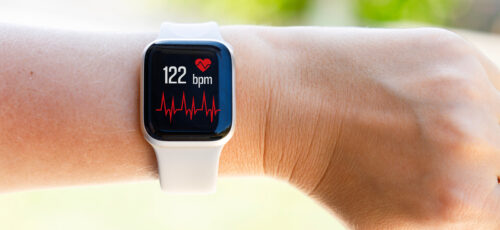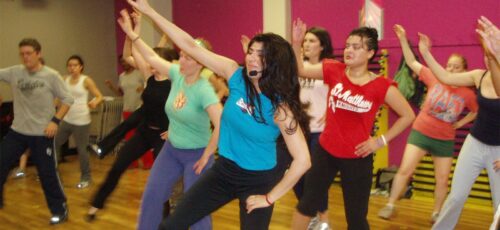
By Matthew C. Harling
As we move through life, stress may become an unavoidable factor in our lives. It may be a week at work leading up to project deadlines, a month of school preparing for the exam you must pass to walk for graduation, or a rocky patch in your relationship. Hey, maybe they’re happening all at once. There’s nothing harmful about a stressful week or month from time to time; however, it is essential to understand the effect of stress on the body and the danger of chronic stress that plays a role in the lives of so many of us every day.
The Purpose of Stress in Our Lives
Stress is how our body responds to things or situations, be it internally or externally, that alter our homeostasis, be it consciously or unconsciously. This produces cortisol, the primary stress hormone of our body produced by the adrenal gland and secreted by the adrenal cortex. Cortisol affects our brains in several ways. It serves our survival abilities, our fight-or-flight response. This increases the availability of glucose by elevating glucose levels and increases our alertness and suppresses non-essential functions. After all, you don’t need to digest food if you’re running from a burning building.

Chronic Stress
As you may imagine, this stress is necessary; however, too much of a good thing is terrible. This is what is referred to as chronic stress. This leads to high glucose levels; our appetite may also increase, leading to weight gain. This, in combination with already prolonged high glucose levels, may snowball into metabolic problems such as type 2 diabetes. Our blood pressure may rise, and our immune system may become compromised. The effect on our digestive system may alter due to constant high cortisol availability. This may cause constipation, bloating, and diarrhea, to name a few. These are only a few negative aspects of chronic stress levels.
The Relationship Between Stress & Exercise & Endorphins
We feel physical stress when we exercise, especially when we push ourselves. During this period, our bodies release endorphins, which are neurotransmitters. These relieve pain and improve mood. For example, athletes in marathons experience a runner’s high. Other neurotransmitters released are dopamine, which is associated with pleasure, reward, enjoyment, and motivation. Serotonin reduces anxiety, regulates mood, sleep, and appetite, and gives a calming sensation. Norepinephrine improves your energy and focus by increasing alertness. Norepinephrine aids in energizing and preparing for what’s ahead. The result of these neurotransmitters leads to a decrease in stress levels and helps to prevent chronic stress.

If we flip this to an individual who does not exercise, chronic stress can change those neurotransmitters by influencing the neurotransmitter system. Cortisol binds to receptors in brain cells, such as glucocorticoid and mineralocorticoid receptors. Over time, this may alter neuron activity and negatively affect the function of brain cells and neurotransmitter activity. High stress levels may cause a disturbance in sleep. Cortisol levels are naturally high in the morning, helping us wake up alert and ready to go. High levels may keep us up at night or cause us to wake up in the middle of the night, leading to insomnia or other disorders. It can lead to more frequent nightmares, causing those disrupted sleep patterns to become even worse as you stress over whether or not you will have another bad dream. Disrupted cortisol levels may leave you drowsy in the morning, causing you to struggle to roll out of bed. Sleep is the most essential part of recovery; as we work out, we beat ourselves down. Sleep allows us to repair ourselves and heal. This creates a domino effect as chronic stress disrupts our sleep, negatively affects endorphins, and prevents us from having the energy to train. This further increases the amount of stress we accumulate. In the long term, it causes cognitive decline, damaging brain cells, increasing Inflammation, disturbing our ability to regulate emotions, and increasing the risk of anxiety and depression.
Aerobic Exercise Effects on Anxiety and Depression
For those who aren’t weightlifters, the good news is that aerobic exercise provides a similar release of hormones that may aid in the fight against anxiety and depression. Aerobic activity strengthens our cardiovascular system. This improves our heart rate and blood pressure, creating a more efficient system that can aid in that racing heart sensation one may experience with anxiety. The method aerobic exercise plays in helping those with depression is also similar. All the previously mentioned neurotransmitters improve. Low levels of the protein BDNF, Brain-derived norepinephrine, have been linked with depression. This protein improves your mood. Other antidepressants are thought to work alongside BDNF. Aerobic activity is also known to reduce chronic Inflammation, which has been linked to chronic stress and depression.

What Can We Do About This
At this point, you may question whether this is a problem in your life. The good news is it’s never too late to do something about it. Exercise is a significant step in fighting against stress or chronic stress. Besides the physiological factors above, working out increases Self-esteem and confidence in yourself. Yes, you are stronger today than yesterday. Yes, you look better now than you did when you started. It boosts that feeling of accomplishment, maybe because you hit a PR or did what you said and made it into the gym another day. You can make friends, find a sense of community, and support combating social isolation; this is important in fighting depression and anxiety. I know you thought I’d go over all the positive physical aspects that exercise gives, but we don’t have to. We have already gone over those; these mental rewards are just as crucial for managing stress.
- Citation: Sapolsky, R. M., Romero, L. M., & Munck, A. U. (2000). “How do glucocorticoids influence stress responses? Integrating permissive, suppressive, stimulatory, and preparative actions.” Endocrine Reviews, 21(1), 55-89.
- Citation: McEwen, B. S. (2007). “Physiology and neurobiology of stress and adaptation: Central role of the brain.” Physiological Reviews, 87(3), 873-904.
- Citation: Spiegel, K., Leproult, R., & Van Cauter, E. (1999). “Impact of sleep debt on metabolic and endocrine function.” The Lancet, 354(9188), 1435-1439.
- Citation: Anderson, E., & Shivakumar, G. (2013). “Effects of exercise and physical activity on anxiety.” Frontiers in Psychiatry, 4, 27.
- Citation: Cotman, C. W., Berchtold, N. C., & Christie, L. A. (2007). “Exercise builds brain health: Key roles of growth factor cascades and inflammation.” Trends in Neurosciences, 30(9), 464-472.
- Citation: Schuch, F. B., Vancampfort, D., Richards, J., et al. (2018). “Exercise as a treatment for depression: A meta-analysis adjusting for publication bias.” Journal of Psychiatric Research, 103, 42-51.
- Citation: Hill, E. E., Zack, E., Battaglini, C., & Viru, A. (2008). “Exercise and circulating cortisol levels: The intensity threshold effect.” Journal of Endocrinology and Metabolism, 93(4), 1325-1330.
- Citation: Anderson, E., & Shivakumar, G. (2013). “Effects of exercise and physical activity on anxiety.” Frontiers in Psychiatry, 4, 27.
- Citation: Cotman, C. W., Berchtold, N. C., & Christie, L. A. (2007). “Exercise builds brain health: Key roles of growth factor cascades and inflammation.” Trends in Neurosciences, 30(9), 464-472.
- Citation: Laborde, S., Mosley, E., & Thayer, J. F. (2017). “Heart Rate Variability and Cardiac Vagal Tone in Psychophysiological Research – Recommendations for Experiment Planning, Data Analysis, and Data Reporting.” Frontiers in Psychology, 8, 213.
- Citation: Kredlow, M. A., Capozzoli, M. C., Hearon, B. A., et al. (2015). “The effects of physical activity on sleep: A meta-analytic review.” Journal of Behavioral Medicine, 38(3), 427-449.
- Citation: Schuch, F. B., Vancampfort, D., Richards, J., et al. (2018). “Exercise as a treatment for depression: A meta-analysis adjusting for publication bias.” Journal of Psychiatric Research, 103, 42-51.
- Citation: Leproult, R., Copinschi, G., Buxton, O., & Van Cauter, E. (1997). “Sleep loss results in an elevation of cortisol levels the next evening.” Proceedings of the National Academy of Sciences, 94(10), 5373-5377.
- Citation: Meerlo, P., Sgoifo, A., & Suchecki, D. (2008). “Restricted and disrupted sleep: Effects on autonomic function, neuroendocrine stress systems, and stress responsivity.” Sleep Medicine Reviews, 12(3), 197-210.
- Citation: Kalmbach, D. A., Anderson, J. R., & Drake, C. L. (2018). “The impact of stress on sleep: Pathogenic sleep reactivity as a vulnerability to insomnia and circadian disorders.” Journal of Sleep Research, 27(6), e12710.
- Citation: Nielsen, T., & Levin, R. (2007). “Nightmares: A new neurocognitive model.” Sleep Medicine Reviews, 11(4), 295-310.
- Citation: Ben Simon, E., Walker, M. P. (2018). “Sleep loss causes social withdrawal and loneliness.” Nature Communications, 9(1), 3146.
Matthew C. Harling is Master Trainer, CSC, at Crunch Fitness.
Crunch promotes a culture of positivity, inclusivity, and fun with no judgments by providing an environment for all individuals regardless of their health and fitness goals. Find a Crunch gym near you to try our free trial membership, or join Crunch now. We’re here for you – at the gym or at home. Access the best live & on-demand workouts anytime, anywhere with Crunch+. Ready to get sweaty? Try hundreds of workouts for free! Start your free trial now!




































































































































































